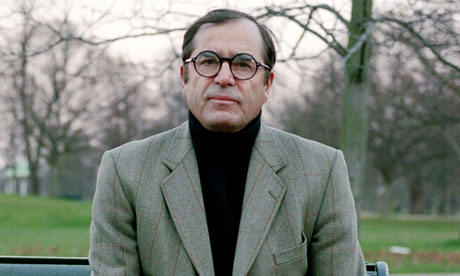Theroux, Paul. The Lower River, Houghton Mifflin Harcourt, Boston, 2012 (336pp.$25)
As a young man Paul Theroux spent a number of years as a Peace Corps volunteer in the squalor of Malawi, a landlocked African country squeezed between Mozambique, Tanzania and Zambia. A writer possessed of a perfervid imagination, with not a flyspeck of cowardice marring his resume, Theroux has, over the many intervening years since that formative Peace Corps experience, produced a large body of work that includes the highly acclaimed novels, “My Other Self” and “The Mosquito Coast”, though he remains best known for his spectacularly daring travel accounts like the recent “Dark Star Safari” and “The Happy Isles of Oceania”.
In “The Lower River”, Theroux returns to Malawi in his imagination, telling the story of Ellis Hock, a Medford, Massachusetts menswear salesman whose disappointments, failed marriage, and rotted, empty human relationships somehow impel him to travel back to Malawi, where he’d once served as a Peace Corps volunteer and where he fantasized he’d been happy once, doing good works for the villagers of Malabo on the lower river. We sense that Hocks’s memory of Malabo is flawed, though he maintains his memories intact until they fail him. He built a school and taught English. He fell in love with a village girl named Gala who would have returned his affections had she not been promised to another. he dallied with other girls who were not so morally attached to their futures. He was doing useful things. He was also known and feared in Malabo as the man who loved snakes and collected them, giving him an aura of power and invincibility over the superstitious natives.
“The Lower River” leaves its rails fairly early. Before departing for Africa, Hock hears about a woman in a neighboring town who owns a python. Hock’s fantasies about snakes give him leave to visit the woman. The reader is subjected thereafter to a long series of embarrassing scenes intended, perhaps, to prefigure Hock’s “being eaten” by Africa.
Once in Malawi, Hock collects a bank draft in the Malawian capital and heads into the bush with his pants stuffed with cash. He’s been warned of the dangers, given that the roads are prowled by thieves, young brigands, and kidnappers. Heedless of these direct warnings and disregarding the dictates of common sense, Hock goes down the road from Blantyre into what can only be called the “heart of darkness”. Then, having arrived in Malabo, Hock discovers that the school he built in the 1960s has fallen into chaotic disrepair, the village itself is in the throes of social and political disarray, and his personal powers, once all-encompassing, have become meaningless. The village headman, an archdeacon of corruption named Festus Manyenga, recognizes Hock for the pigeon he is, a mzungu (white man) who can be exploited and cast aside.
Theroux certainly knows east Africa, its calamitously dark nights which fall as suddenly as a guillotine, its dry odor of eucalyptus, its dense smell of wood smoke and sweat. There are many pages that reveal Theroux’s deep understanding of the physical environment of Malawi. However, Theroux’s book betrays a wealth of clichés in its telling of a white man pursuing his own grim end amid Africa’s puzzlements, illnesses and malodors. For example, Hock is tended by Zizi (Gala’s granddaughter) who winds up his peculiar sexual fetish a cliché which has shown itself in some of Theroux’s other work about Africa. Hock’s money is stolen in tiny increments for various reasons and by various villains, though mostly by Manyenga, who prizes Hock as his hostage.
Naturally, (an eventuation which grows inevitably from the clichéd premise), Hock grown feverish and ill, loses weight, and begins to die. When Zizi tries to help him escape, she is raped and sent back to Hock as a warning. Hock’s single personal effort to flee lands him at the compound of an international charity, where cartoonish characters suggestive of Angelina Jolie and Bono drop food from a helicopter, but ignore his pleas for help. All this leads Theroux to some unnatural and fictionally uncomfortable observations about “development aid” and Western involvement in charity. In one 2005 opinion piece for the New York Times, Theroux hectored Bono as a “wealthy Irish rock star in a cowboy hat”—exactly the character who appears in “The Lower River.”
In these matters it is impossible to sympathize with Hock, or for that matter, with Theroux, who should know better than to butter up intelligent readers with ideas that seem as stagnant as his view of Malawian village life. Likewise, it is impossible to sympathize with Hock’s sexual fantasies about the 16-year old Zizi, who is little more than a personal servant, or with Hock’s own febrile character and morals. And it is impossible to sympathize with Theroux’s current fictional style, which proceeds with serial commas and lots and lots of semicolons.
Most importantly it is impossible not to conjure a book that Theroux might have written had he himself gone back to the village in Malawi where he once served as a Peace Corps volunteer 50 years ago. It would have been a distinguished travel book comparing what Theroux saw and understood of Malawi in his early 20s with what he sees now, both Malawi and the man having changed. It would be a challenging book, a serious book, and it would take a devoted heart, a heart that Theroux surely still possesses.


